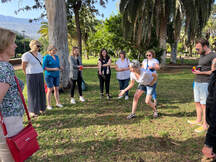 The role of a teacher is to transfer knowledge to their students and to help them develop certain skills and abilities. On the other hand, a coach has to support and motivate its pupils by listening, asking questions and challenging them. Although these roles seem different, what if a teacher applied the rules of coaching into the classroom and became a motivator as well? In the realm of education, a teacher's primary responsibility is to impart knowledge and facilitate the development of skills and abilities in their students. Conversely, a coach's duty is to provide guidance and encouragement to their charges, utilizing active listening, asking questions, and providing constructive challenges. The aim of this course is to explore how to integrate those two roles that might appear distinct. This was the idea we addressed during the new edition of the course “Coaching skills for teachers, school and adult education staff” that took place in Tenerife from 12/03/2023 to 18/03/2023. The participants came from all across Europe, with Árný, Aníta, Einar and María from The University of Akureyri in Iceland, Pedro, Manuela, Ana and António from Agrupamento de Escolas Emídio Navarro in Portugal, Kimmo from Ammattiopisto Live in Finland, Gabriella from Bajai III. Béla Gimnázium in Hungary, Tanja from Osnovna šola Davorina Jenka Cerklje in Slovenia, Ewa and Lidia from Fundacja Biuro Inicjatyw Społecznych in Poland. After exploring some tools to “coach ourselves”, the participants started to explore the main coaching skills: they first delved into the topic of Emotional Intelligence, which refers to the ability to recognize and understand not only our own emotions but also those of others. When teachers possess emotional intelligence, they can connect better with their students and guide them in managing their feelings. Coaching involves motivating others to achieve their best selves. To enhance coaching skills, participants were taught how to set SMART goals to improve their skills effectively. Conflict management is another crucial skill in coaching that is essential in every workplace, including a classroom. It requires self-awareness and emotional control to avoid the escalation of conflict. Coaches must help their students find a solution to the problem by facilitating a dialogue, without imposing their opinions or solutions. Still taking about coaching skills, participants went outside to practice some tools to improve teambuilding and collaboration, reflecting on the meaning of “leadership” and how important is for a coach to guide students in the group dynamics as well. It was an enriching moment, everybody was sharing their experience. The course continued with exploring the importance of questions as a powerful tool to promote thinking, self-reflection, and the development of ideas. The course also explored the "Solution Focused Brief Coaching" model to encourage a solution-based mindset among students. We finished with a role play to put in practice all the different models of questions we learned together. Overall, it was an enriching week filled with meaningful discussions and collaborative learning. The topics covered and the connections made in a natural and relaxing environment of Tenerife will always hold a special place in our hearts and memories! Discover more about this course here. |
Welcome to the ELA Blog. Here you will find articles and photos of our courses and have a look at the topics addressed during the week in Bologna, Palermo and Tenerife. You will also have the chance to take a peek at our projects and check out what we have been up to.
Archives
July 2024
Categories |
-
Course catalogue
- 2023-2024 course catalogue
- Soft Skills >
- ICT and New Technologies >
- Inclusion and Diversity >
-
Innovative Teaching Methods
>
- Innovative teaching methods discovery
- Non-formal education teaching methods
- Dual education and work-based learning
- Teaching leadership and entrepreneurship
- Project based learning
- Game based learning and gamification
- Green skills
- Outdoor education
- Outdoor education trekking edition
- Promoting creativity and critical thinking
- Languages and EU projects >
- Preschool >
- Erasmus Plus KA1
- What we do
- About us
- Locations
- Blog
- Contact us
 English
English български
български Čeština
Čeština Español
Español Français
Français ελληνικά
ελληνικά Italiano
Italiano Polski
Polski Português
Português Română
Română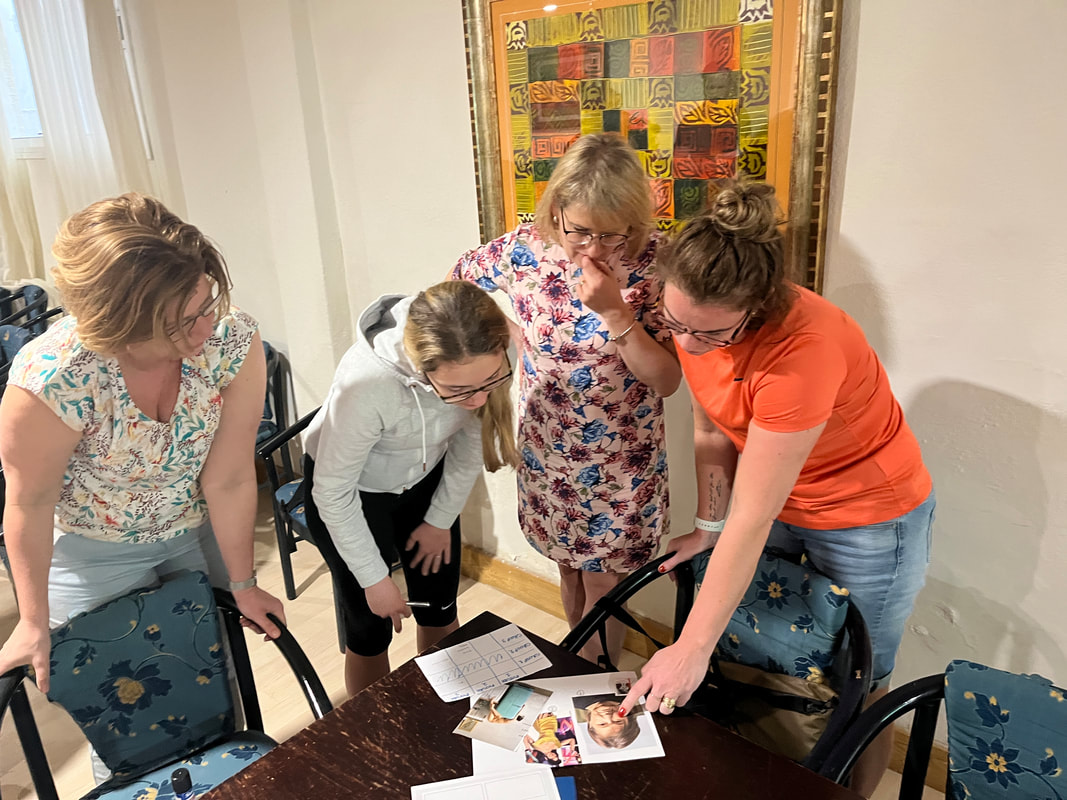
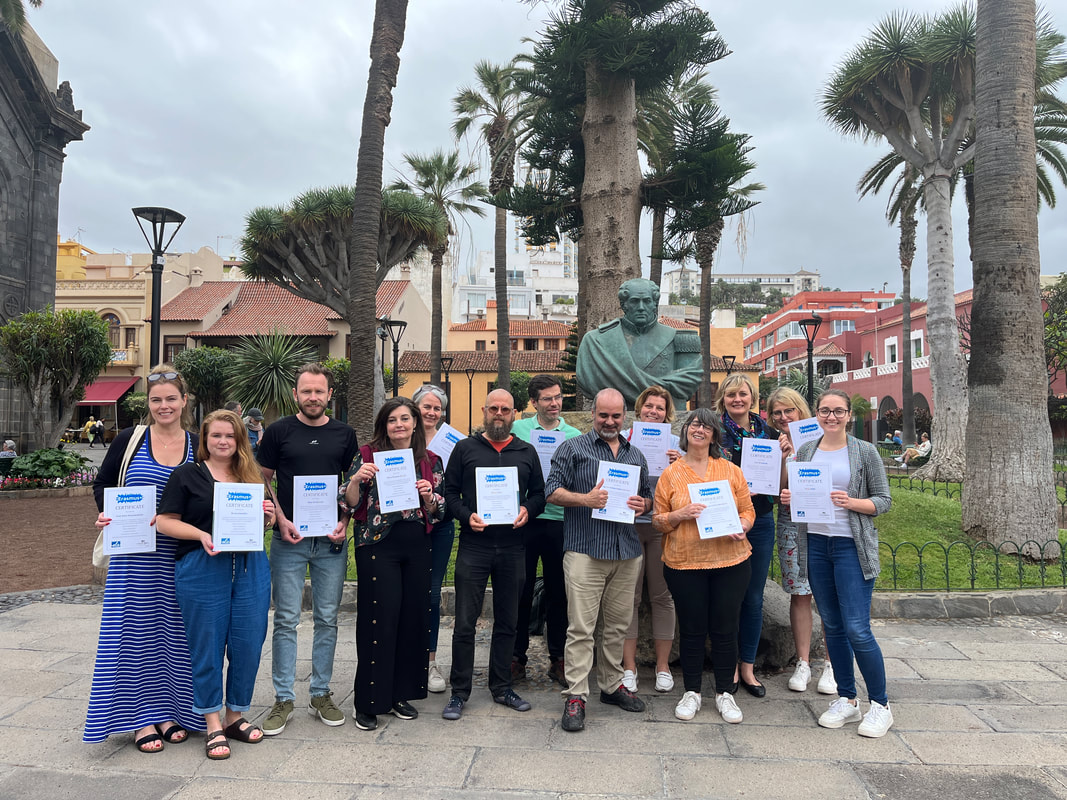
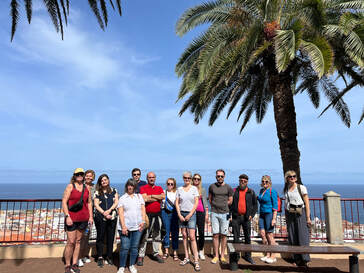
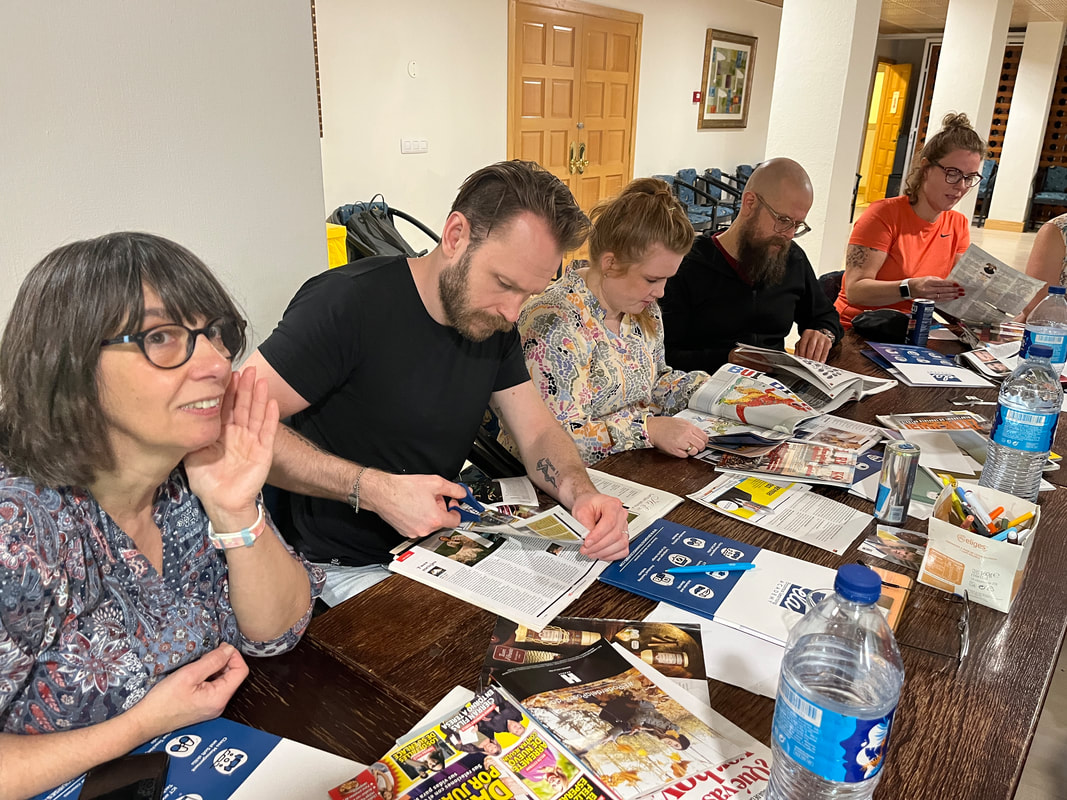
 RSS Feed
RSS Feed









